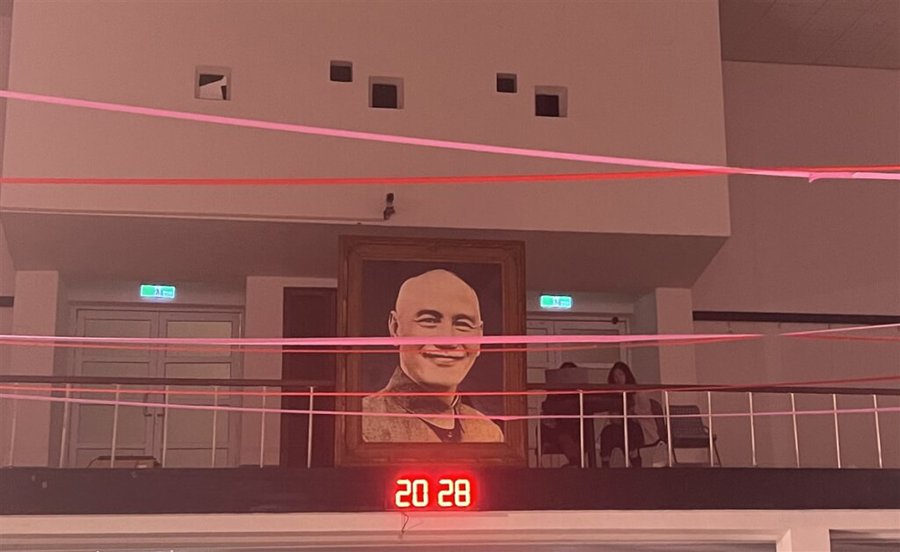

In a democratic Taiwan, Chiang Kai-shek goes out of fashion (Photo: @TaiwanNewsEN/Twitter)
Steadily, statue by statue, the island nation of Taiwan is moving away from the conflicting memories of former dictator Chiang Kai-shek as it uproots his statues and discards them in a park in the north-western Taoyuan city, close to capital Taipei.
The latest to be erased from public spaces are Chiang’s portrait from an auditorium in the National Chengchi University (NCCU) and the renaming of a bus stop from ‘Bronze Statue of Chiang Kai-shek’ to ‘Hero Slope Station’. Both of these suggestions came from the students’ association of the NCCU.
These are not isolated incidents but a trend that is growing fast. This university incident follows the removal of a large bronze statue of CKS in April from a public square in Suao town which will now be redeveloped. The statue was sent to Taoyuan’s Cihu park to join other similar statues of a smiling Chiang of various sizes and colours.
India Narrative spoke with experts to find out more about the change that Taiwanese want to see in the island nation, that goes to polls in 2024, amid a tug of war between its two big parties – the ruling Democratic Progressive Party (DPP) government led by President Tsai Ing-wen and the Kuomintang (KMT), considered to be pro-China.
Tibetan leader – the Dalai Lama’s nephew, Khedroob Thondup, who is based in Taipei says: “The DPP government has always been removing the CKS (Chiang Kai-shek) statues as they remind them of the crackdown and martial law in Taiwan”. The DPP is a staunch pro-democracy party which prides itself on its nationalist credentials.
Research Associate at the Centre for China Analysis and Strategy (CCAS), Namrata Hasija says: “The more President Tsai Ing-wen’s party DPP grows, the more the feeling of patriotism grows. With the rise in Taiwanese national identity, more of Chiang Kai-shek’s memories and symbols will be discarded in times to come”.
Students and pro-independence groups have been at the forefront to remove Chiang’s memories as he symbolises Taiwan’s autocratic past. Even city governments have taken the lead in renaming schools and public areas that bear Chiang’s name. The democratic republic has witnessed numerous incidents of CKSs statues being vandalised and spray-painted by nationalist and pro-democracy groups.
It is believed that between 1947 to 1987, the decades when Chiang and his son ruled the nation with an iron hand, tens of thousands of civilians had been killed and upto 1,40,000 imprisoned. However, many in Taiwan view Chiang in a more balanced way and want history to be judged fairly.
Also read: Taiwan Strait crisis can mutate into war warns top US think tank
Australia's High Commissioner to India, Philip Green OAM, called Yoga one of India's gifts to…
The Bharat Sanchar Nigam Limited (BSNL) has announced the soft launch of BSNL Quantum 5G…
The Indian Embassy in Iran has said that the embassy will make efforts to evacuate…
India's gross direct tax collections for the financial year 2025-26 rose by 4.86 per cent…
Russian President Vladimir Putin has said that Moscow is not seeking Ukraine's unconditional surrender, but…
Extending his greetings on the 11th International Day of Yoga, Lok Sabha speaker Om Birla…